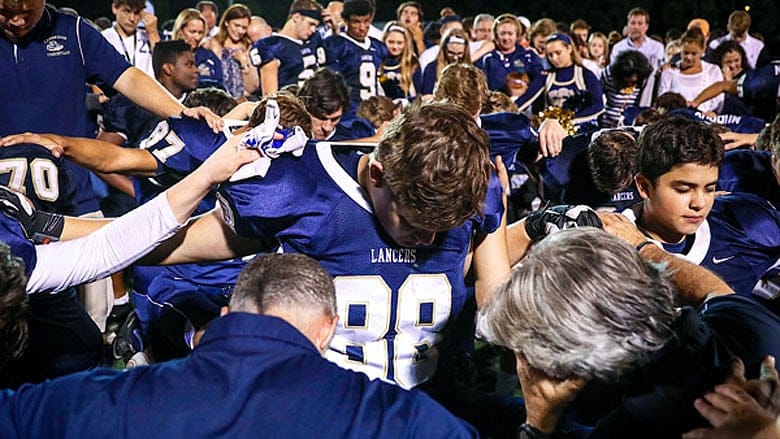Apology demanded from Fla. athletic association for denying football teams use of loudspeakers to pray

(CNSNews.com) – Liberty Institute, a non-profit legal organization dedicated to the preservation of religious liberty, is demanding that the Florida High School Athletic Association (FHSAA) issue a written apology for not allowing two Christian football teams to use the loudspeakers at Orlando's Citrus Bowl to pray before their 2A state championship game last month.
Dr. Roger Dearing, executive director of the FHSAA, denied requests by two private schools – Cambridge Christian School (CCS) in Tampa and University Christian School in Jacksonville – to use the loudspeakers to broadcast both teams' prayers before their big game on December 4.

